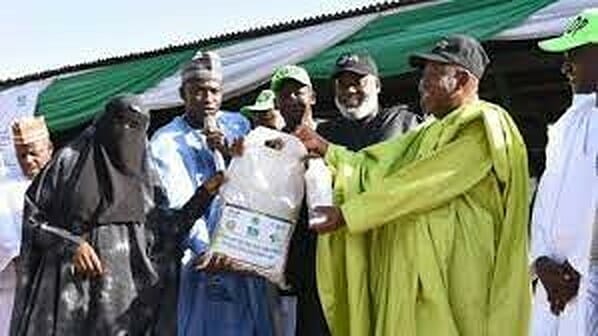The National Centre for Genetic Resources and Biotechnology (NACGRAB) has received about 200 indigenous crop samples from farmers in Kano State, for conservation in national gene-bank (seedbank) and evaluation.
The germplasms (seeds) were received during the ‘Farmers Participatory Variety Selection’, under the “Crop for Resilience” project, conducted in Minjibir and Bebeji Local Governments, on Sunday.
The News Agency of Nigeria (NAN) reports that the project being supported by the Global Crop Diversity Trust, was aimed at mitigating effects of climate change in the country.
The NACGRAB Assistant Director, Dr Abisoye Ojo, received the germplasms (seeds) on behalf of the Director of the centre, Dr Sunday Aladele.
She commended the farmers for the donations, saying that such would enrich the national gene bank (seedbank) by conserving the germplasms (seeds) for research and other purposes.
According to her, the conservation would enable researchers to have access to the different indigenous crop samples in the gene-bank for breeding, particularly in view of the climate change.
She said that it would also assist to increase agricultural productivity and guarantee food security in the country.
The assistant director listed some of the indigenous crops samples received to include, sorghum, millet, rice, groundnut, beans, sesame and maize, among others.
“The germplasms (seeds) may look alike, but their genes might be different, that can only be detected in our laboratory,” she said.
The assistant director added that farmers could also approach the centre to get seeds used by their ancestors even in over 50 years ago.
The Technical Assistant to the NACGRAB Director, Mayowa Olubiyi, said that a Technical Working Group had already been constituted for the new project.
Olubiyi said that 100 farmers were selected from each of the three participating states of Kano, Niger and Oyo. He noted that the farmers had already been formed into Germplasm User Groups.
Olubiyi explained that during the Farmers Participatory Variety Selection exercise in Kano state, 300 samples (accessions) of cowpea and sorghum planted by the project were evaluated.
“Seeds of the samples that did excellent in germination, will be multiplied by the centre and distributed to farmers for further sharing to others,” he said.
Some of the farmers interviewed by the News Agency of Nigeria (NAN) commended the centre for selecting the state for the project.
They, however, said that their major challenges were insufficient fertilizers and other farm inputs.
A Ward Head in Bagauda, Malam Abdullahi Haruna, brought two samples of indigenous sorghum to the centre. He said that he had been using the samples which he said were high yielding, early maturing, drought and insect resistance for decades.
